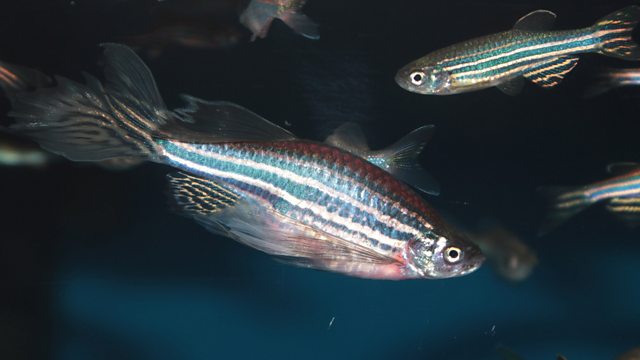
Predator Bacteria Therapy
Bacteria that kill other bacteria; Libraries - good for your health; Women in science; Silicon-carbon life; Female genital mutilation; Dung beetles
Bdellovibrio is a small bacterium which preys and kills other bacteria. A team of researchers from the University of Nottingham in the UK has shown in animal experiments that injections of the predator microbe can successfully treat infections. So how close does this take us to Bdellovibrio therapy for human patients and what part might it play in tackling the growing crisis of antibiotic resistance? Adam Rutherford hears from Professor Elizabeth Sockett.
Libraries - Good for Your Health as Well as for Books?
In Philadelphia libraries are not just being used to study and borrow books. Public health researchers are training library staff to help point vulnerable people in the direction of resources to help them – like drug and alcohol services and homeless shelters. Librarian Renee Pokorny says Philadelphians feel safe there and turn to staff when they have a crisis.
500 Women Scientists
In the wake of the election of Donald Trump to be the next President of the United States, five hundred women scientists have written an open letters demanding that women and minorities have equality in science. Dr Franciska De Vries of Manchester University explains why she is a signatory.
Silicon-Carbon Life
Life on Earth is carbon-based, that means the major chemical building block is carbon. Why is it not silicon? They are very similar and sit together on the periodic table. Yet silicon-based molecules in nature are unheard of. Now researchers at Caltech, in the US, have directed the evolution of proteins that can now act as enzymes or catalysts to make compounds of carbon and silicon bond together in nature. It could spell a whole new field of synthetic biology with a different kind of chemistry.
Custom of Cutting
More than 200 million women and girls alive today have undergone female genital mutilation, or cutting. It is where parts or all of a girl's genitals are damaged or removed. There are no medical benefits to FGM, and women who undergo the practice can face problems in later pregnancies, infections and even death due to blood loss. FGM is recognised internationally as a violation of the human rights of girls and women. The head of the UNFPA recently described it as child abuse. The ����ý's Global Health correspondent Tulip Mazumdar has travelled to East and West Africa to investigate efforts to end the practice and ask why this extremely harmful tradition is proving so difficult to stamp out.
It’s All in the Poop
Dung beetles that live on cow pats have been shown to help stop the lifecycle of parasitic worms that infects cows. Experiments using artificially-made cow pats, some with and some without dung beetles, have shown that the industrious insects clear up 30% of parasite infections, as Roland Pease has found out from the University of Bristol’s Bryony Sands.
(Photo caption: Zebrafish (Danio rerio) aquarium fish © kazakovmaksim)
The Science Hour was presented by Claudia Hammond with comments from ����ý News science reporter Victoria Gill
Editor: Deborah Cohen
Last on
More episodes
Broadcasts
- Sat 26 Nov 2016 23:06GMT����ý World Service except News Internet
- Mon 28 Nov 2016 06:06GMT����ý World Service South Asia
Podcast
-
![]()
Unexpected Elements
The news you know, the science you don't

